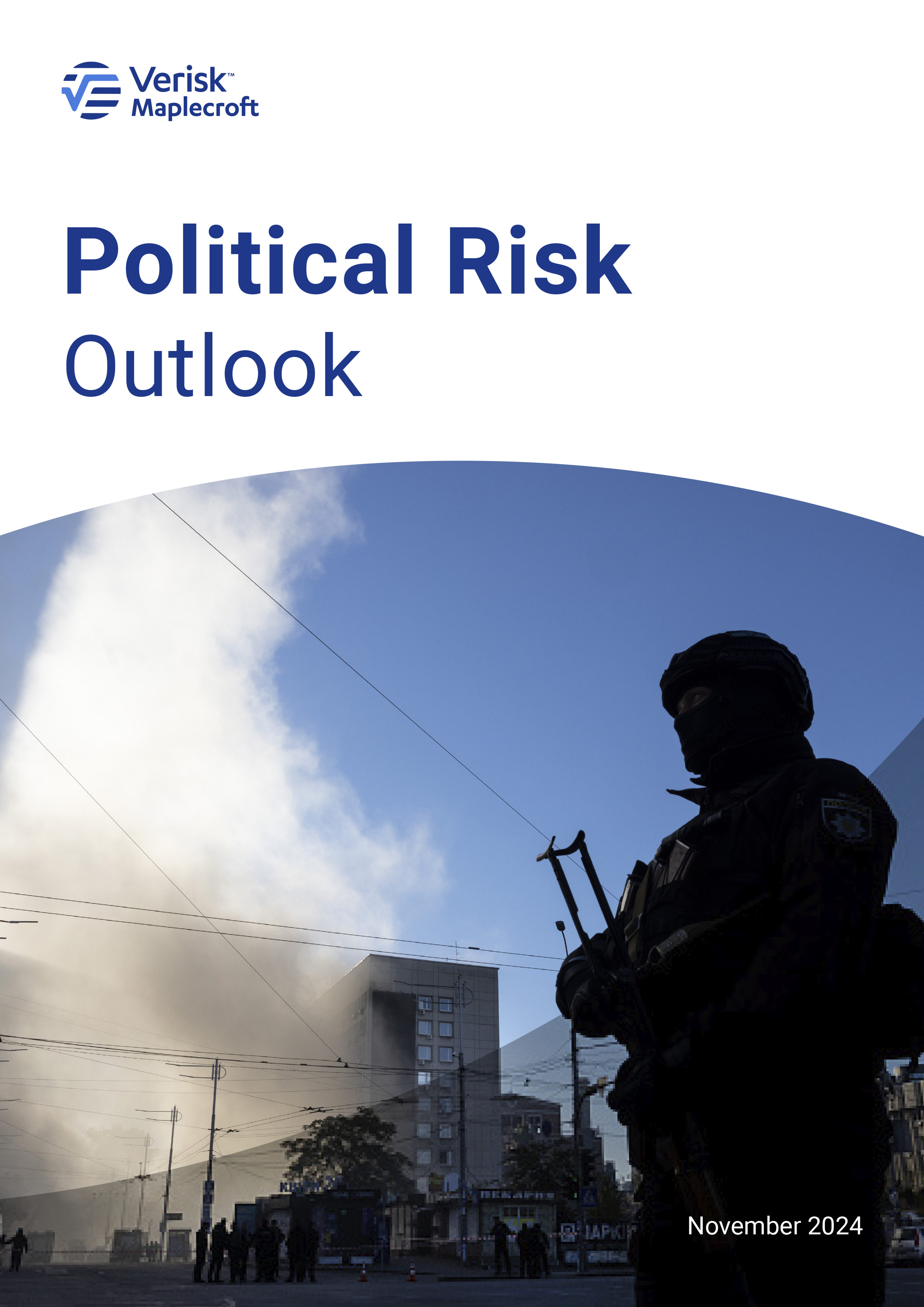As ‘deglobalisation’ and ‘friend-shoring’ gain momentum, a concurrent rise in global trade restrictions and escalating diplomatic tensions, particularly between the US and China, have raised the cost of doing business globally to a 10-year peak. Our research shows that nowhere is more affected than Western democracies and their allies, where companies are bearing the brunt of rising tax burdens alongside increasing operational costs that have, in part, been exacerbated by their own countries’ protectionist policies.
Current debates on the potential effects of deglobalisation often focus on macrolevel issues such as global trade volumes, interconnected supply chains and crossborder capital flows. However, the rising tide of tit-for-tat trade measures between geopolitically diverse blocs is having an immediate impact on businesses at the local level, straining operations and competitiveness in domestic markets.
Our data reveals that harmful policy interventions linked to deglobalisation have adversely affected business costs across major economies, including Germany, the UK, Japan, South Korea and the US, despite some governments’ efforts to improve their domestic policy environments to ease the burden. Although the exact costs are difficult to quantify due to overlapping factors like the COVID-19 pandemic, some estimates suggest the trade war’s cumulative impact on the global economy from 2018 to 2023 is between USD1.5 trillion and USD2 trillion.
The re-election of Donald Trump signals that trade protectionism will continue apace, which could have a boomerang effect. Successfully derisking supply chains from geopolitical competitors will, in all likelihood, continue to increase the cost of doing business in Western democracies. This means that consumers and companies are going to foot the bill for a substantial realignment of the global production and flow of goods and resources between countries.
Businesses battle diminishing returns amid splintering economies
Our data indicates that global business costs have been steadily increasing over the past decade. However, the last six years of trade conflicts — initially sparked by the escalation of the US-China trade war during the Trump presidency — are most responsible for upending a previously stable period of international trade and intensifying long-term challenges for global businesses.
Since 2018, 14 of the 20 countries most impacted by protectionist trade policies have seen significant declines in their business environments, including major economies that represent about 45% of global GDP. These trade measures — such as export controls, national security-based investment screenings, protectionist subsidies, and higher import tariffs — have occasionally reduced regulatory burdens for domestic firms. However, as our data shows, they have largely fallen short of improving the broader domestic business climate amid growing macroeconomic pressures and global competition.
Business costs, including labour and taxes, have risen across nearly all affected nations, with the US, UK, and South Korea seeing the steepest increases. In Germany and France, adverse trade interventions have also led to significantly higher borrowing costs. Much of the cost escalation is linked to trade measures targeting vital industrial sectors — such as steel, agriculture, auto parts, and pharmaceuticals — which form the backbone of the global economy. In contrast, China has demonstrated greater resilience despite domestic challenges and being a major target of trade sanctions.
In a second Trump administration, the proposed revocation of China’s permanent normal trade relations (PNTR) status, coupled with a substantial increase in protectionist measures, could markedly intensify the ongoing deglobalisation process. With proposals for 60% tariffs on goods from China and 10-20% on imports from the rest of the world, Washington’s approach would likely spark reciprocal actions that together could cause significant upheaval in global supply chains and trade flows.
As economies continue to realign along geopolitical lines, the pressures of tariffs, reduced trade, investment uncertainty, and shifting supply chains will likely hike up long-term costs.
Intensifying trade war offers up new winners and losers
New dynamics are, however, unfolding as businesses seek ways to navigate escalating trade barriers. As US-China tensions intensify and bilateral trade declines, both countries are increasingly shifting their focus toward key ‘connector’ economies.
Mexico and Vietnam, in particular, have reaped significant benefits from their strong ties with both the US and China. Since 2018, they have increased their share of US imports while capturing a larger portion of Chinese exports and foreign direct investment (FDI), signalling a redirection of global trade flows. This shift is supported by their robust performance on our data measuring the business environment.
However, rising political sensitivity surrounding these investments will force both countries to navigate a delicate balancing act. Given Vietnam’s substantial trade surplus with the US, it could face additional restrictions under the incoming Trump administration. A pivotal moment for Mexico will be the mandated review of the USMCA trilateral free trade agreement in July 2026. During this review, we anticipate the next US administration to seek measures aimed at curbing the ability of Chinese companies to complete products in Mexico to circumvent US tariffs and import restrictions.
Both countries also present unique challenges that pose increasing operational and security risks for global businesses expanding into these markets. Mexico’s major economic centres consistently fall into the highest risk category of our Crime Index, primarily due to organised crime and elevated violence levels. Vietnam is among the highest risk countries worldwide for several critical labour rights concerns. Our data indicates that risks related to modern slavery, forced labour, and trafficking have significantly worsened over the past five years, while civil and political rights have stalled. This negative trend highlights that greater economic engagement with Western partners has not resulted in better worker protections or overall human rights improvements in Vietnam.
The rise of ‘connector’ economies may soften the economic fallout from the trade war to some degree. However, a shift towards increasing trade within blocs and reducing trade between competitive markets is likely to undermine global trade efficiency further and drive up costs. This is particularly consequential for small and medium-sized enterprises (SMEs) that rely on international exports. Expanding costs could severely impact their financial stability and heighten default risks in the coming years. Multinational supply chains reliant on SMEs could face disruption as a result.
Geopolitical realignment changing the operating landscape
As global economies increasingly align into three blocs — one led by the US, one by China, and a third that includes nonaligned nations — rising operational and supply chain costs stemming from growing protectionism could erode corporate margins and competitiveness, especially for companies headquartered outside the US.
To navigate the turbulent years ahead, companies must look beyond traditional priorities, such as production costs, efficiency, and innovation, and integrate geopolitical risk considerations across all segments of their value chain. This shift requires a more rigorous examination of the origins of raw materials, the countries where goods are manufactured and the locations of services and logistics hubs. The broader implications for national and regional security of investments in new and existing sectors are now firmly in the sights of policy makers. Business will have to follow suit.





